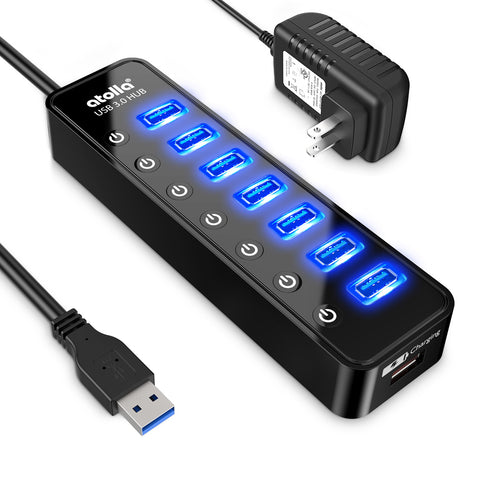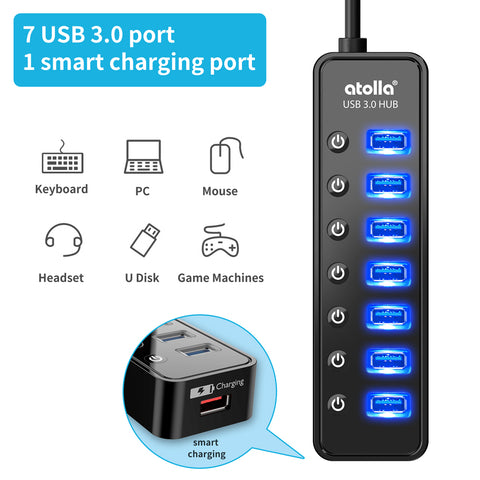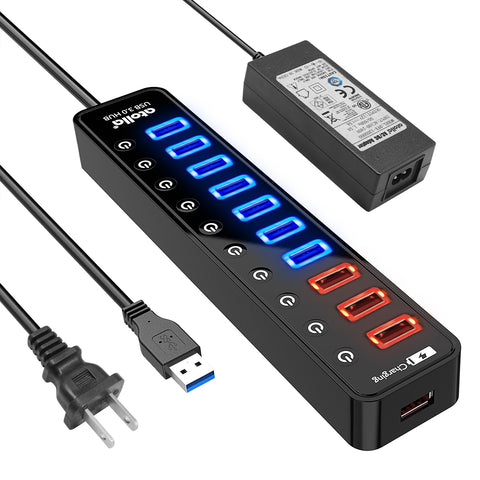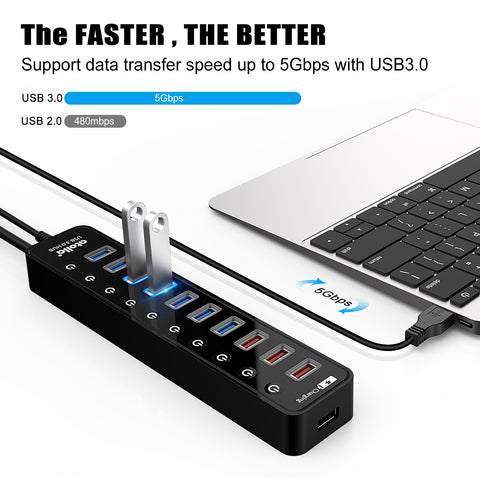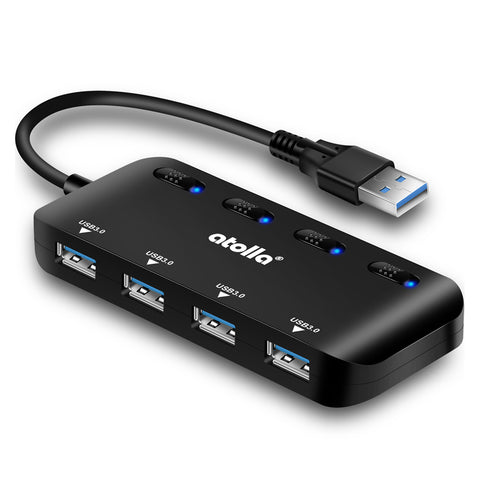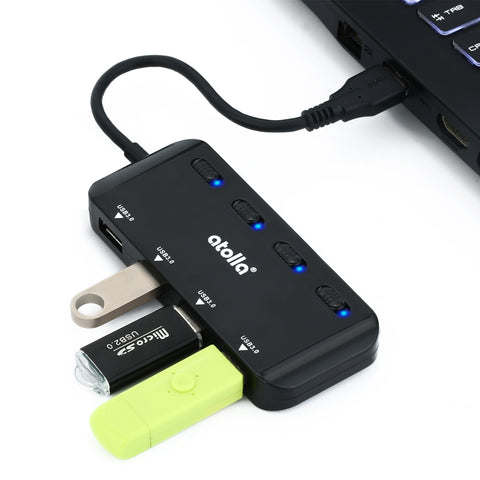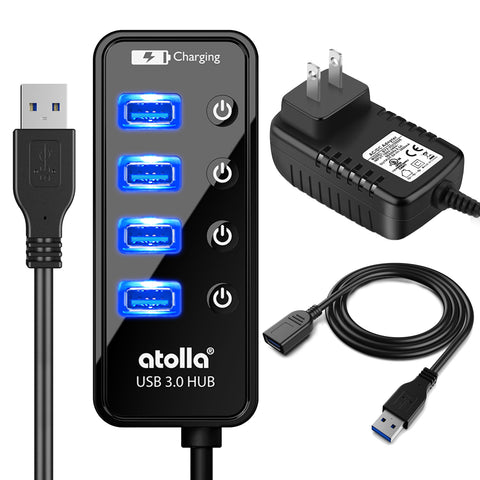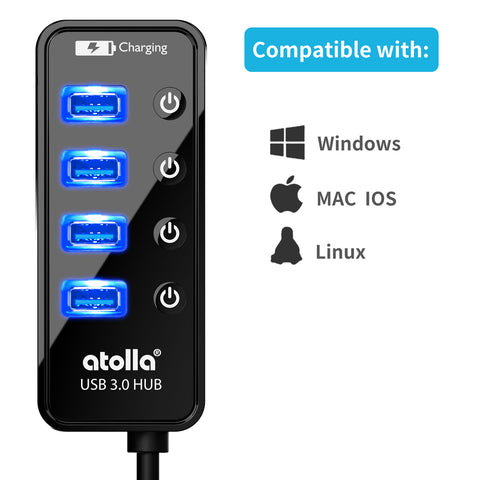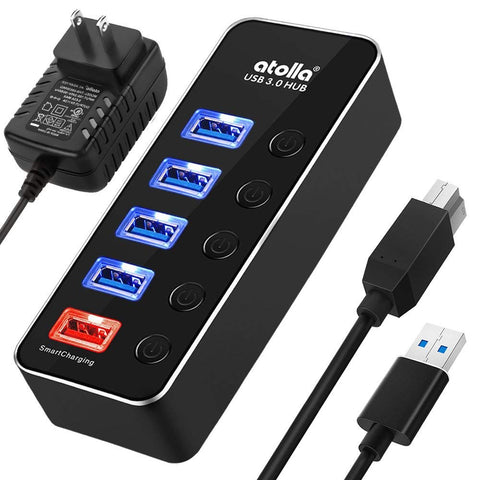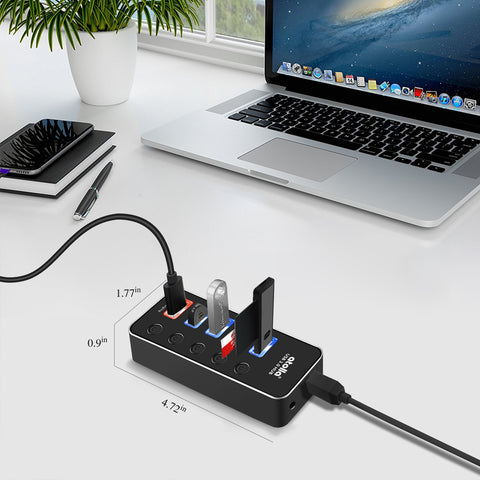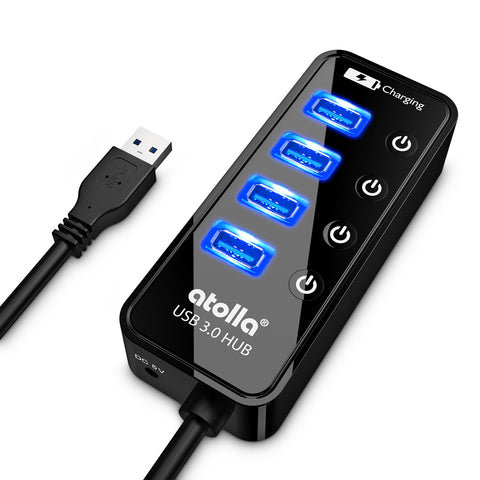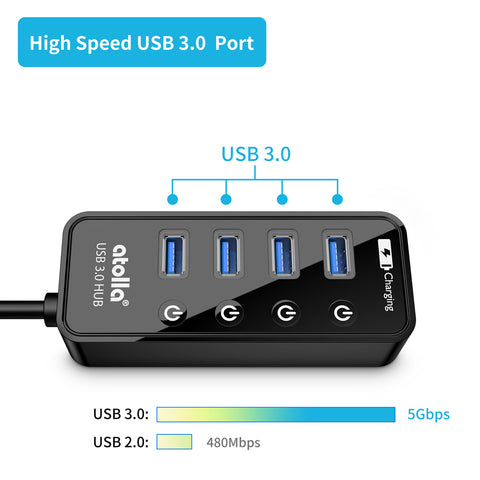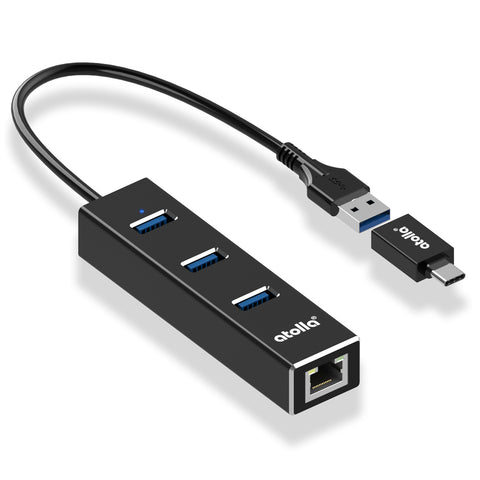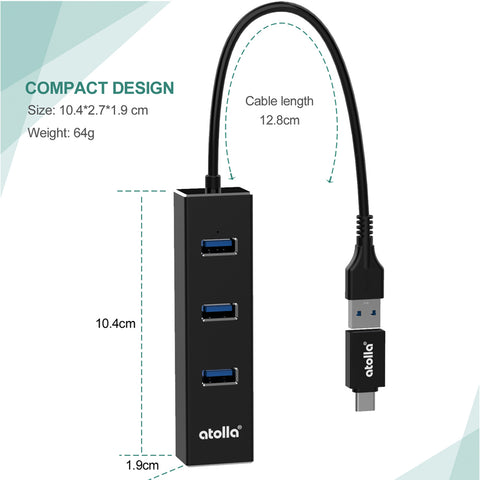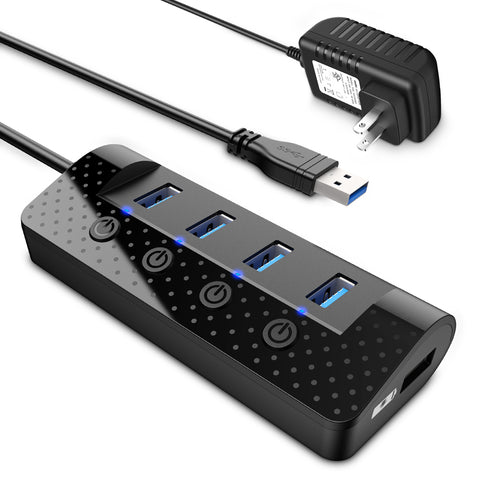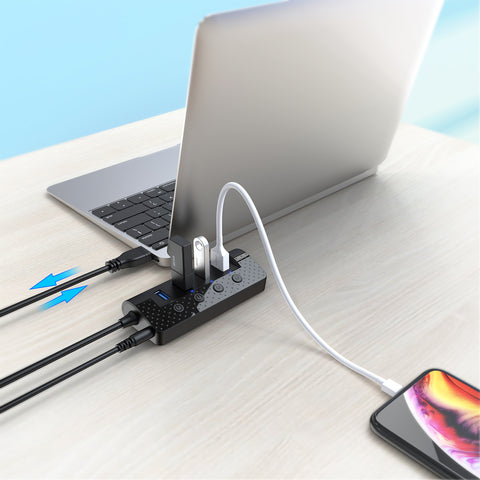What is a USB hub?


USB Hub definition
A USB hub is a compact, light unit. It refers to the expansion of a single Universal Serial Bus (USB) port into multiple devices so that more ports can be used to connect the device to the computer simultaneously. When linked up correctly, some hubs can support up to 127 devices.

Types of USB hubs
According to the USB protocol, USB hubs can be divided into three types.
-
USB 2.0 hub support USB 2.0, backward compatible with USB2.0/1.1, theoretical bandwidth up to 480Mbps.
-
USB 3.0 hub supports USB 3.0, backward compatible with USB3.0/1.1, theoretical bandwidth up to 5Gbps.
-
USB 3.1 hub supports USB 3.1, backward compatible with USB3.0/2.0/1.1, theoretical bandwidth up to 10Gbps.

According to the power supply form, USB hubs can be divided into three types.
-
Bus-powered hub (passive hub) – It gets all its power from the host's USB port and does not require a separate power connection. However, many devices require more power than this hub provides and fail to work in it.
-
Self-powered hub (active hub) - It is a hub that receives power from an external power unit, thus providing full power (up to 500mA). After all, a USB hub with a power supply gives you the flexibility to use the power. Many hubs can work as bus-powered or self-powered hubs.
-
Dynamic-powered hub – It can work either as bus-powered hubs or self-powered hubs. They can switch automatically depending on whether there is a separate power supply.
Features and Benefits
-
Faster Data Transfer
-
Charge Multiple Devices
-
Perfect for Multitasking
-
Wide compatibility
-
Less Damaging to Your Machine
-
Run Heavy-Duty Components

All in all, the use of USB hubs is increasing because items such as laptops and other mobile computing devices require increased connectivity, while the number of connectors on the devices is reduced to keep them thin and uncluttered. The capabilities of these hubs continue to improve, enabling them to interface with many standard USB-based interfaces, making them look like small additional computing devices. If you want to make your work more productive, just go and get one.
